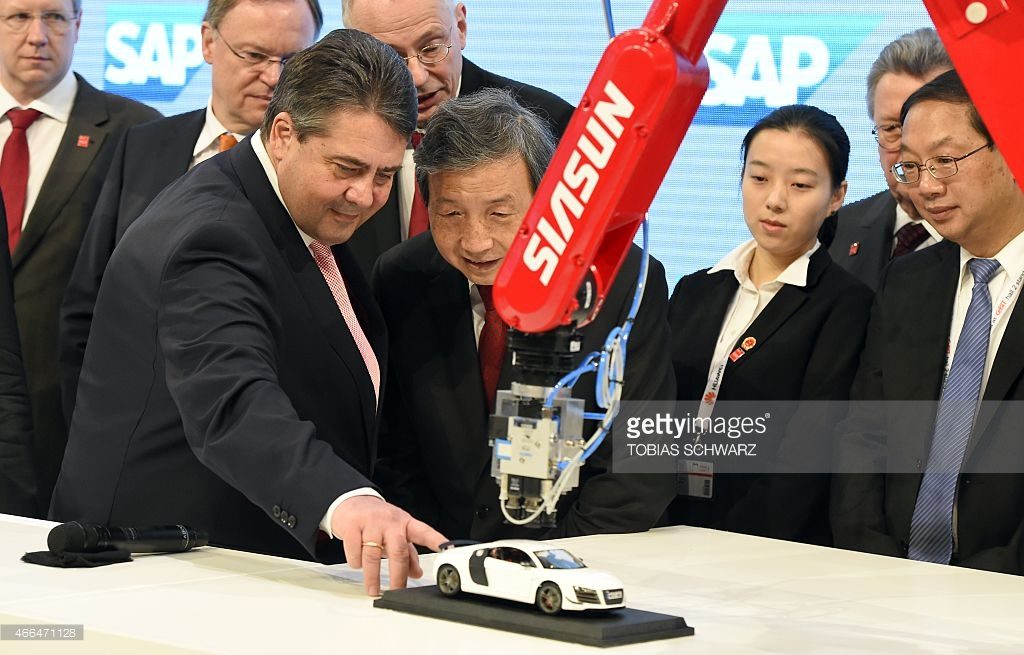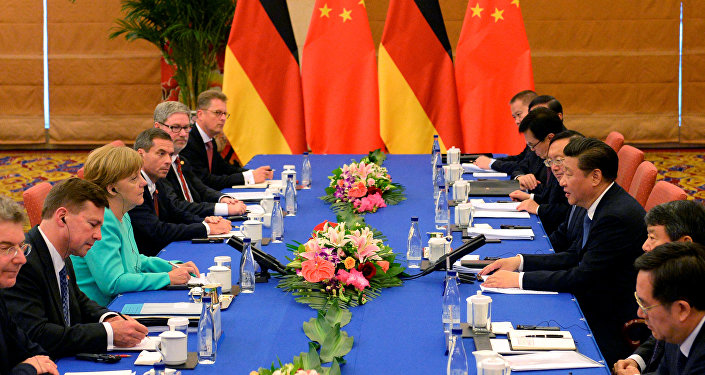
Alibaba and Aixtron: difficult relations between China and Germany
Alibaba is opening its first cloud centre in Europe, and Germany was chosen for its location. The deal is the result of a cooperation with Vodafone, and represents just one step of a much wider global strategy of China’s e-commerce giant. The one in Germany is the first of four data centres Alibaba is preparing to establish, the others will be in Japan, Dubai and Australia, alongside the two already operating in the US. With Germany as the core, Alibaba has already opened seven branches in Europe.
The plan of Jack Ma, Alibaba’s founder, well fits the Chinese government strategy of the New Silk Road, connecting China with Europe along an old road, which nowadays is being made also of intangible cloud platforms. However, Alibaba’s success seems to be quite an exception among Chinese investors willing to enter Germany. In fact, the honeymoon the two countries have been living in recent times seems to have come to an end. The situation of Sino-German economic relations has been pretty tense, and the recent visit to China of German Economic Minister, Sigmar Gabriel, just confirmed the negative atmosphere.
 In the course of 2016, a series of Chinese acquisitions in Germany – such as the hot debated purchase of the high-tech robotics firm Kuka by the Chinese Midea – have caused a lot of concerns in Berlin, which decided to put other cases under close scrutiny. The one related to the takeover of Aixtron by Chinese Grand Chip Investment, hit the headlines seeing involvement of a third actor, the United States. The Committee on Foreign Investments in the US said the deal could have unspecified implications for national security, as Aixtron chips have applications in military and space industry. After receiving US concerns, and considering Chinese government’s heavy involvement in the bid, the German Economic Ministry withdrew its previous approval, and put the purchase under further examinations.
In the course of 2016, a series of Chinese acquisitions in Germany – such as the hot debated purchase of the high-tech robotics firm Kuka by the Chinese Midea – have caused a lot of concerns in Berlin, which decided to put other cases under close scrutiny. The one related to the takeover of Aixtron by Chinese Grand Chip Investment, hit the headlines seeing involvement of a third actor, the United States. The Committee on Foreign Investments in the US said the deal could have unspecified implications for national security, as Aixtron chips have applications in military and space industry. After receiving US concerns, and considering Chinese government’s heavy involvement in the bid, the German Economic Ministry withdrew its previous approval, and put the purchase under further examinations.
Aixtron is a semiconductor firm producing chip since early 1980s, whose customers are mostly in Asia – China included – and which does considerable business in the US, where one of the production site is located. Given that Aixtron products have always been sold globally, some analysists noticed that the controversy may be related to US concerns for the strengthening of Chinese competition in the field, rather than for actual security reasons.
However, Germany has itself showed a general discomfort on how the Chinese are handling their economic relations with the rest of the world. Minister Gabriel has been pretty straightforward during his visit to China in demanding that the country respects fair competition, rules for investments and market access. In particular, Gabriel referred to China’s dumping policy regarding steel and aluminium and discriminatory practices of Chinese market access with respect to the important car industry.
 The deterioration of Sino-German relations was already visible during last June’s official visit of Chancellor Merkel, when governmental consultations turned out to be especially difficult. On the one side, Merkel insisted on the importance of the dialogue on human rights and rule of law, while the Chinese side emphasized the support needed for obtaining the Market Economy Status from the European Union.
The deterioration of Sino-German relations was already visible during last June’s official visit of Chancellor Merkel, when governmental consultations turned out to be especially difficult. On the one side, Merkel insisted on the importance of the dialogue on human rights and rule of law, while the Chinese side emphasized the support needed for obtaining the Market Economy Status from the European Union.
Recently we have seen different cases of European countries waking up against Chinese investments judged unfair, yet, the EU does not seem to have a coherent long-term strategy toward Chinese investments into member states,. Given the importance of China as a market for European products, with Germany at the top of the list for the high-tech field, Europe should start thinking who these products will be sold to when China will be able to fulfill its domestic manufacturing needs.




